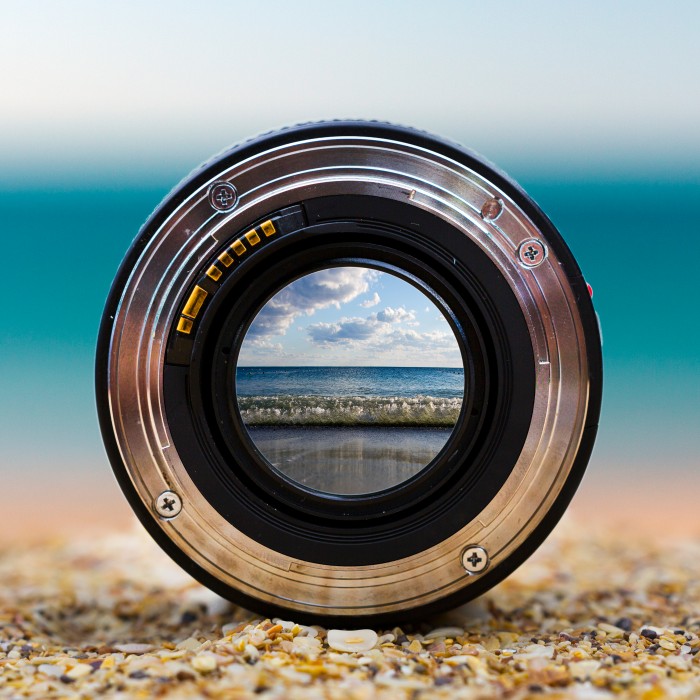Your New Superpower: Clarity in a Sea of Mass- & Mis-Information
By Dr Daniel Owens, PhD SENr4 Minute Read

4 Minute Read
“We are drowning in information, while starving for wisdom. The world henceforth will be run by synthesizers, people able to pull together the right information at the right time, think critically about it, and make important choices wisely."
- Edward O. Wilson
As we invest more time and resources into ways to improve our health and wellness, the supply of educational products continues to grow. For instance, in 2021 the digital health space has seen revenue in nutrition apps projected to reach US $126.88m (GBP £92.7m). The overarching aim of these apps is to help people adopt favourable nutrition habits to subsequently improve their overall health and performance.
Whilst access to more information has the potential to empower us, poor quality information can have the opposite effect. As such, there must be clarity on what this information is actually doing (is every piece of information really benefitting you?).
Information and choice ‘overload’ can leave us feeling more confused and frustrated than it can empowered. At The Edge, a core part of our mission is to provide truth, clarity and simplicity in nutrition.
We combine our scientific expertise with our experience of supporting Champion athletes to empower others; helping you feel more in control of your nutrition choices through better understanding the information you read and how you can make best use of that information.



Research suggests that we seek out information when we feel it will help us make better choices. Also, when we think the information will help us feel good and make sense of the world around us.
If you’re reading this blog, the chances are that you’re seeking out credible nutrition information that will help you make better decisions, make you feel good and ultimately help you to feel empowered. You’ve probably read other blogs, watched YouTube videos, downloaded apps or listened to podcasts for the same reason, however you may find the information you get from one source contradicts that of another. This begs the questions..
It’s also important to know what information we wish not to receive so that we don’t unnecessarily complicating things. These are all important questions that we’ve likely asked ourselves, but many times we come up short.
Being aware that there is too much information out there is the first key step to refining how you receive your nutrition advice. Sometimes, it’s more beneficial not to keep seeking out more information, particularly if it doesn’t really serve any purpose. As I write this, I think of the times friends and family have asked my advice about niche areas of nutrition and fad diets but can’t tell me how they’re doing the basics correctly. They’d be much better off limiting information to trustworthy, impartial sources that educate and provide clarity on the fundamentals of healthy and sustainable nutrition habits.
The second key step is to be critical about information. The Edge approach is to filter and limit the information we consume in order to best inform our own decisions and those we take with our clients.
We empower those we support to make intelligent choices about their nutrition, health and performance by using a science based and research informed approach. We do this because our professional training has taught us that science allows us to make the most accurate recommendations built on the best information we have right now. With this approach, we provide information with a known level of certainty.
It might sound complicated to take a science and research informed approach but if done correctly it makes things much simpler. You will find that many sources of information simply don’t pass the ‘BS filters’ thus leaving you with fewer but higher quality options that you have more trust in.
As you navigate your way through the nutrition, health and wellness sphere, we encourage you to keep some simple questions in mind. We’re not suggesting that you sieve through peer-reviewed scientific journals but suggest to proactively question the information that you are consuming.
This will take some practice, but in the long run, it's time well invested in ‘your future self’ (and the future self of your significant others).
Instead of trying to make sense of every piece of information that comes your way, invest more time into finding high quality information sources. Through filtering the information you remove the junk. By removing the junk, you increase the quality. By increasing the quality you fast-track (favourable) impact.
The Edge HPL is not responsible for any specific health or allergy needs that require supervision nor any adverse reactions you may have to the advice we provide - whether you have followed them as written or have modified them to suit your dietary requirements.
Any nutritional advice and information provided by The Edge HPL is based on our own experiences, research and knowledge. The information provided is not to be used in place of proper medical advice. The Edge HPL and its employees and representatives are not medical professionals, do not hold any type of medical licenses or certifications and do not practice medicine. If customers have any medical questions regarding any advice or information provided by The Edge HPL, they should consult their physician, or another healthcare professional. Please also refer to our Standard Business Terms and Conditions, which can be found on our website.